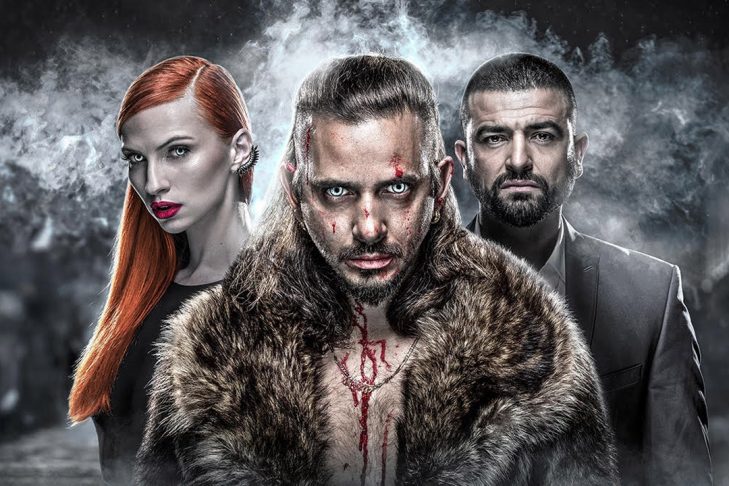I’m a big fan of hypothetical questions that spark debate within the Jewish community, and with the concept of vampires constantly floating (or hovering) in the back of my mind, I’ve found myself diving into the question of whether or not a creature of the night can be Jewish.
This topic has been debated hotly by generations of Jews, and its implications are explored in the Israeli television show “Juda,” where religion and vampirism meet. The consensus, as far as I can tell, is that due to their thirst for blood (human or otherwise), a vampire could not keep kosher. A counter argument to this is that a vampire would need to drink blood to stay alive, but then the question arises: Is a vampire life really a life? Can a vampire have a soul? And so forth.
Of course, the antisemitic implications of a Jewish vampire usually stop this debate (un)dead in its tracks. An incredibly flimsy but prolific excuse for violence toward Jewish people is accusations of blood libel, where Jews were accused of drinking the blood of Christian children. To what end? Your guess is as good as mine, since I’d personally prefer some water or a nice iced coffee. But the point still stands: to represent a Jewish person in media as a vampire carries some pretty weighty implications.
Related
Now that we have our unfortunate Jewish vampire, the question remains: Could she continue to practice Judaism? Vampires cannot cross onto holy ground, though this often refers to Christian-specific ground, so entering a synagogue would be a bit difficult. In “Interview with the Vampire,” Brad Pitt and Tom Cruise are both able to say “God,” so praying privately may be an option. Vampires also can’t cross running water, and immersion in a mikvah relies heavily on living water. If our hypothetical vampire was Jewish before her turning, she may find many vital Jewish practices difficult due to her new rules.
On a more somber note, I’m also interested in how a Jewish vampire would mourn. Would she say Kaddish for herself or mark her own yahrzeit? What about for other vampires or Jewish people in her life? I’m inclined to lean toward a modified version, since a Jewish person is still Jewish even in death. These are all, of course, very silly questions, but questions are the backbone of faith. Though I can’t definitively say whether a vampire could be Jewish, the not-knowing is part of the fun, and fuel for many conversations among many, many Jews.





